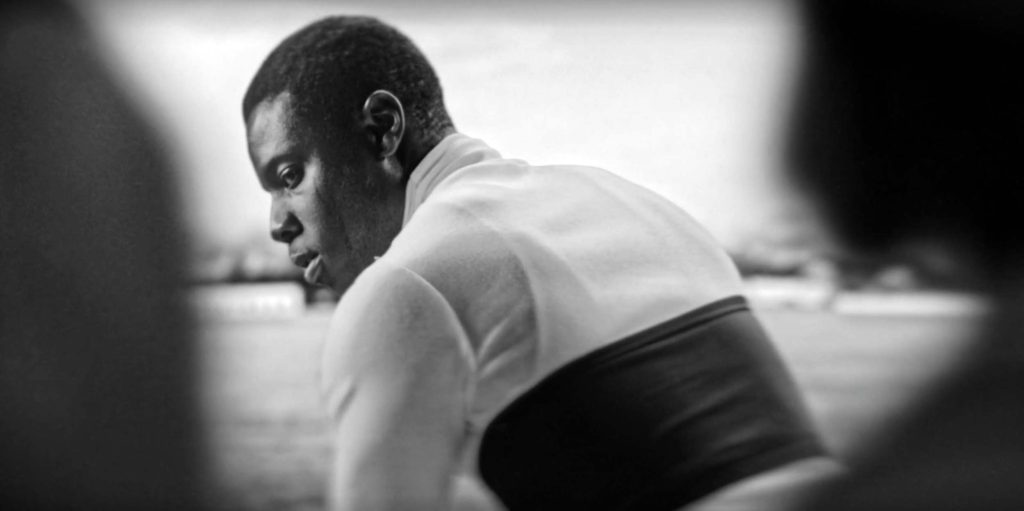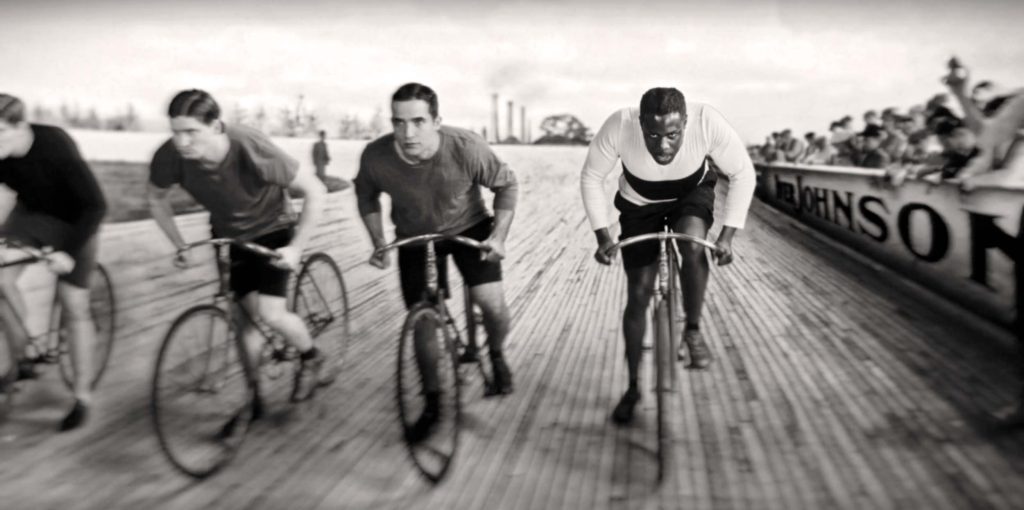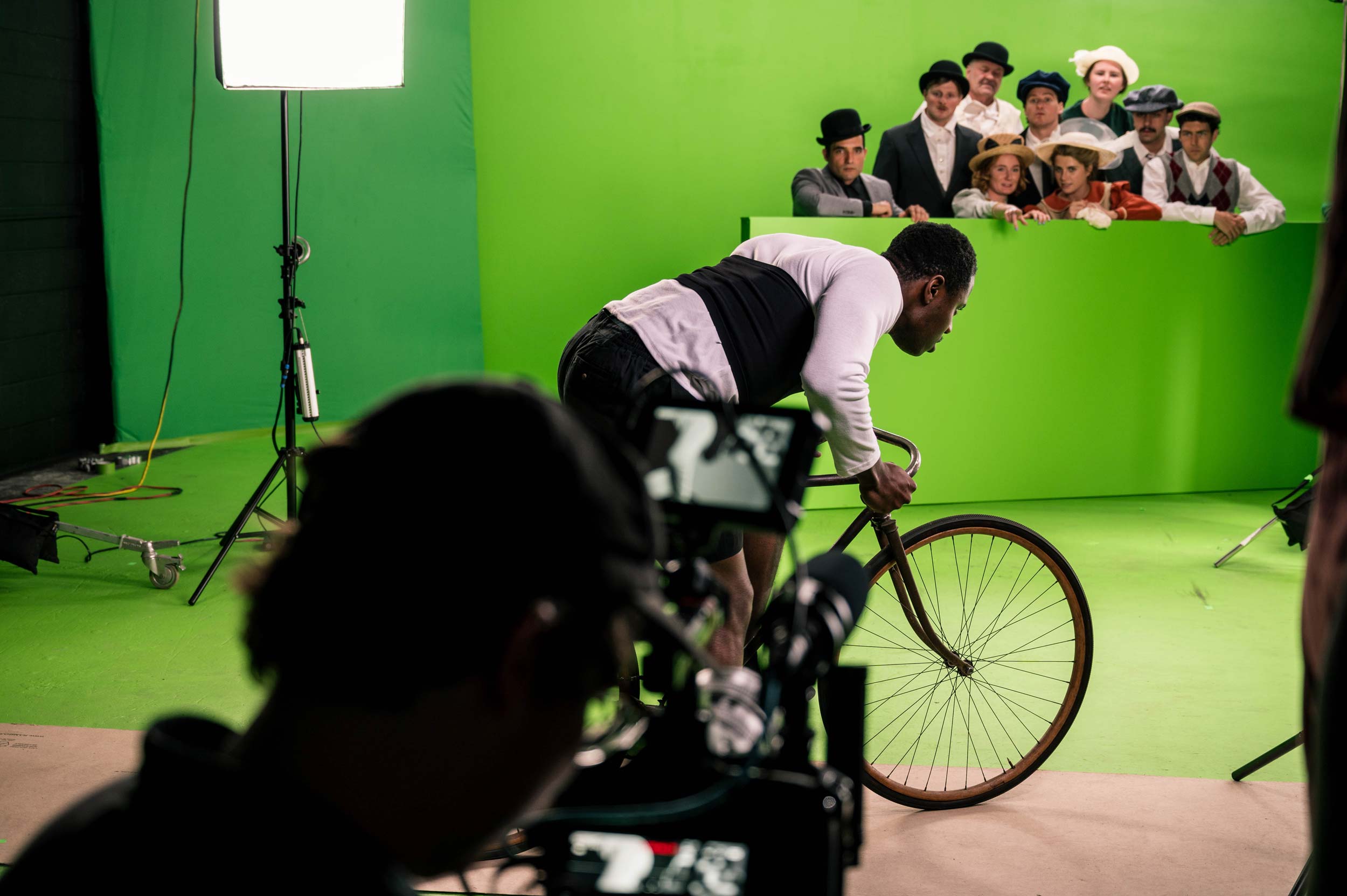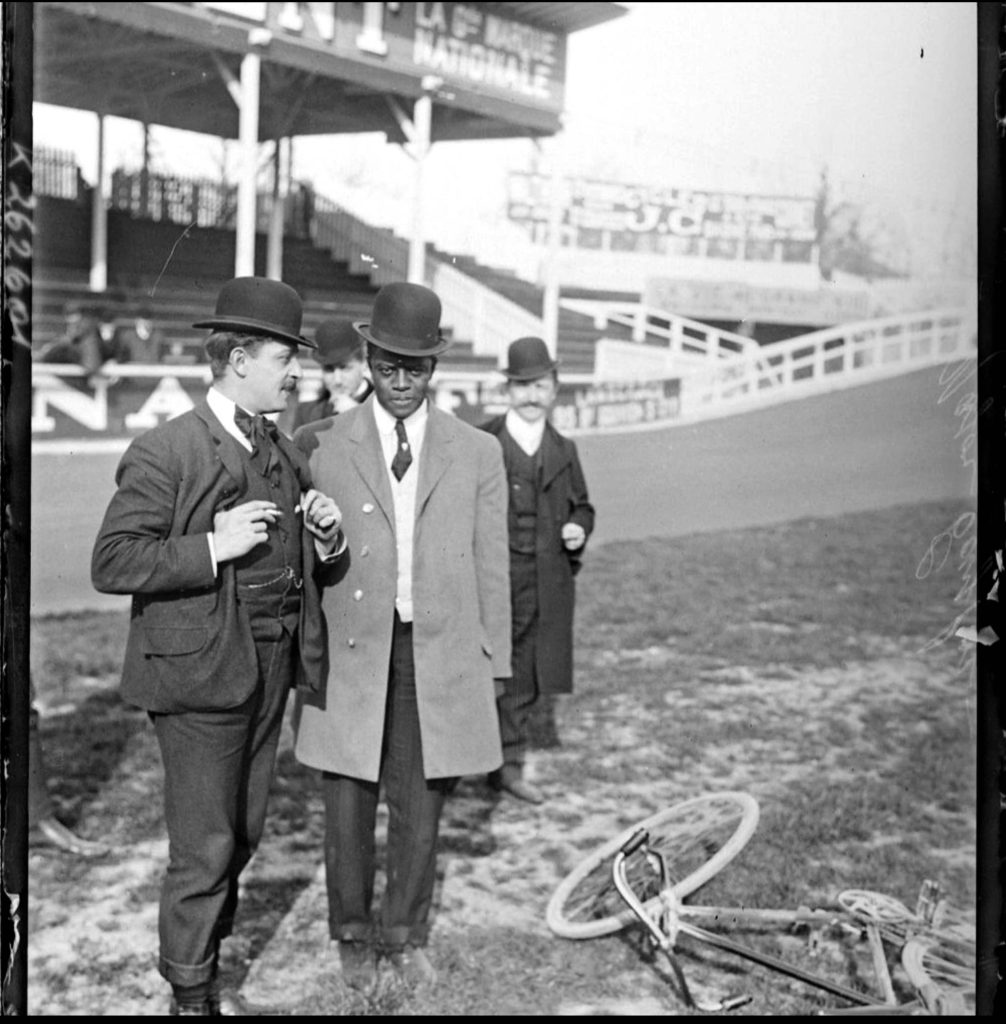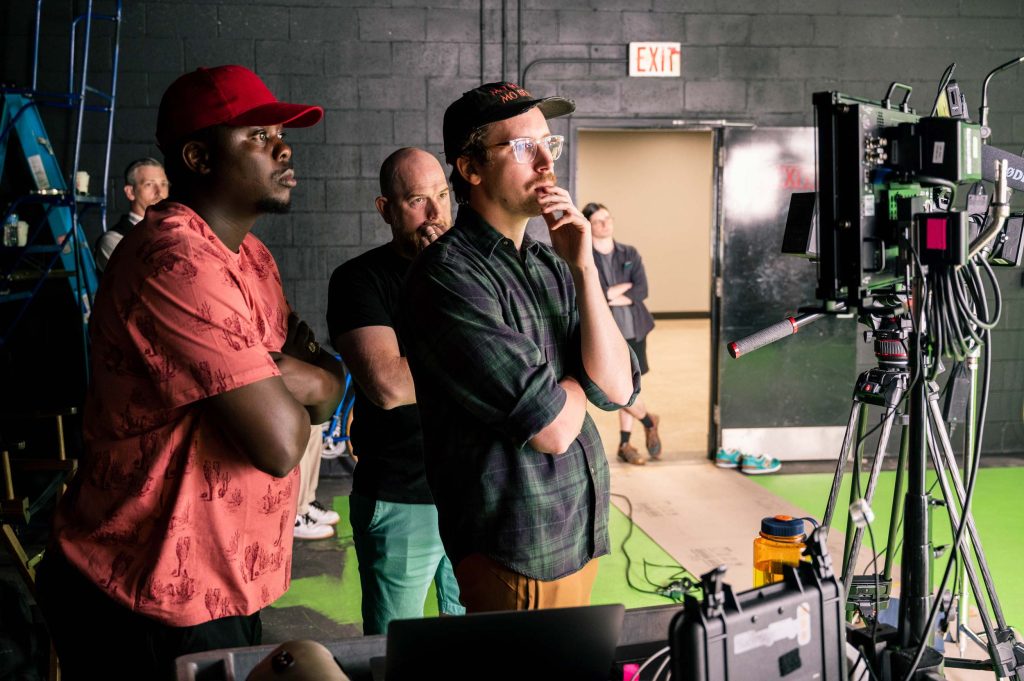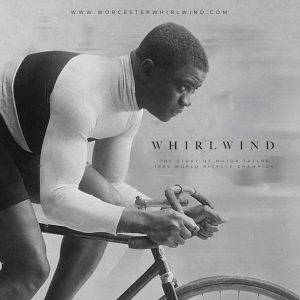Major Taylor was a force in cycling who paved the way for change in many aspects of life. As a teenager he finished his first six-day race, at Madison Square Garden in New York in 1896, in eighth place. Within three years he would become a world champion in the one-mile sprint… but his legacy is about much more than sport.
– Introduction to an interview by Rob Arnold
It’s likely that you have heard the name Major Taylor. He was a key figure in cycling at a pivotal time for the sport, but his legacy extends well beyond the competitive arenas in which he showcased his talents on the bike.
Born in Indianapolis, Major Taylor would move to Worcester, Massachusetts on the advice of his first cycling manager Louis ‘Birdie’ Munger and it was here that a career of change began.
– Click the link below to watch an interview with documentary filmmaker Cyrille Vincent –
Cyrille Vincent is a documentary filmmaker who became aware of Major Taylor thanks to a statue in his honour outside the Worcester public library. His curiosity about that monument would eventually provide the catalyst for a project that will soon be a feature length documentary about a sporting superstar from the United States.
Major Taylor won plenty of bike races. A sprinter of repute, he was also an ambassador for change and his influence on generations of Americans should never be underestimated.
There are hurdles for every aspiring athlete to overcome, this was true at the end of the 1800s and remains so to this day. But some obstacles are greater and what Major Taylor achieved is indeed worthy of a film in his honour.
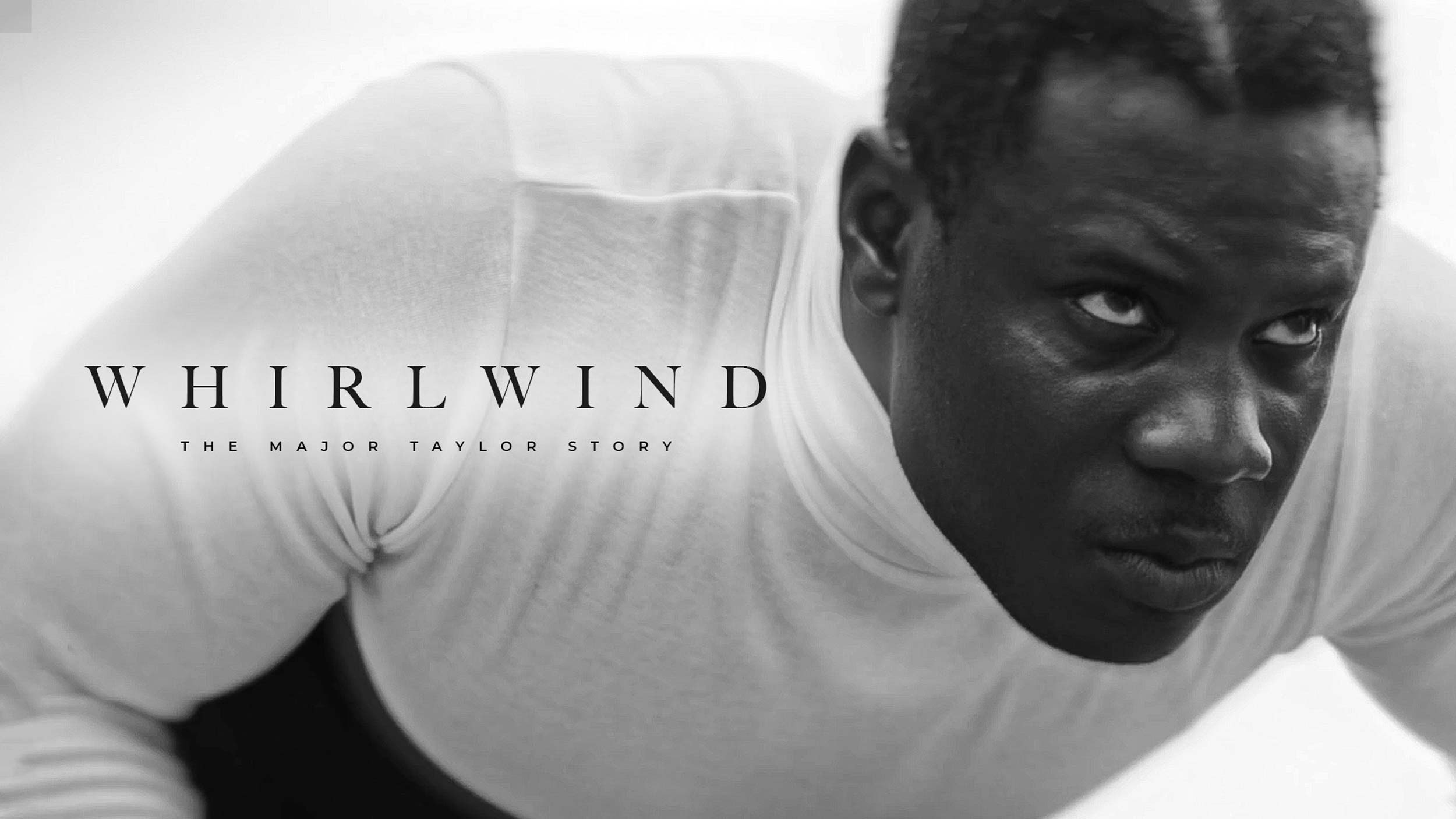
‘Whirlwind – The Major Taylor Story’ is a documentary in the making. There is no release date yet, but you can find out more by visiting: www.worcesterwhirlwind.com
Although I’ve reported on cycling for over 30 years, no interview about a bike rider has included references to the kind of setbacks Major Taylor faced throughout an impressive career.
When I spoke with Cyrille Vincent about the film he’s working on, several themes stood out as remarkable in his explanation of the inspiration for the documentary that he expects to finish in the coming years (although he’s hesitant to nominate a release date, as work is ongoing an).

Cyrille Vincent and the actor who plays Major Taylor for the recreation of scenes for the documentary.
Winning bike races at a world-class level is never easy but what Major Taylor did during a career that spanned from the late 1800s through to 1910, when cycling was a relatively new concept, is truly inspiring.
He overcame rivals on the velodrome but also the biases of the times and demonstrated that the colour of his skin wasn’t going to hinder his chances of sporting success.
When Vincent speaks about the period during which Major Taylor was carving out a name for himself, he references some of the shocking elements of American history and speaks about lynching and the rampant racism that existed long after the so-called ‘Reconstruction Era’.
Vincent explains that Major Taylor faced challenges no modern cyclist could ever consider having to overcome.
“He didn’t have access to the track because he was banned for his colour,” says Vincent early in our long interview about his documentary, ‘Whirlwind – the story of Major Taylor’.
Watch the trailer to Whirlwind…
“Major Taylor wasn’t just racing for himself, he was racing to change the world.”
There is a lot more to the Major Taylor story than the victories he achieved. His career became a triumphant one, but it was only possible thanks to a stoic determination few athletes – before or since – have had.
During our long discussion, many topics are raised and Vincent explains why Major Taylor is not only a key sporting figure in cycling but also in world history.
There’s a lot of work still to do on the documentary film which features no archival footage – as motion pictures were still in development at the time when Major Taylor competed – but there are recreated scenes to help showcase a remarkable story of sporting endeavour and human spirit.
Shortly after recording my interview with Cyrille Vincent, the first trailer for his documentary was added to the ‘Worcester Whirlwind’ site.
(Click the image below to find a preview of what promises to be a compelling film.)
Even from a young age, it was clear Major Taylor had the physical traits that would make him a fine athlete but he was denied the same opportunities of others because of the colour of his skin.
Worcester, Vincent explains, “was more tolerant but there was still racism”.
Although he helped put the city in the headlines, Major Taylor didn’t have access to some schools, and he wasn’t allowed to buy a house there.
The documentary will focus on the many aspects of what makes Major Taylor’s life so remarkable. It took only 30 minutes of conversation with Vincent for me to come to understand why this is an important documentary to make. He is passionate about the cultural changes that this sporting figure helped achieve but there is also a clear appreciation of the athletic prowess of the film’s subject.
The sporting elements of Major Taylor’s career certainly captured the attention of a filmmaker who also focuses on the racial hurdles faced by a cyclist who would, against the odds, go on to become a true global sporting star.
When talk turns to racing at Madison Square Garden, Vincent’s eyes light up and he talks about the size of the crowds that gathered to watch bike racing in New York City late in the 1800s. He explains how it was the sheer brutality of what the racing did to the competitors that added appeal for spectators.
On the opening nights of the New York Six-Day races, it was difficult to find a seat in the house. But the prospect of seeing delirious racers after several days of competition, Vincent suggests, was even more compelling.
“It seems like people had more fun when the riders were already tired,” he says, “when they were hallucinating… so if you go on the third day you were probably gonna have more fun than on the first day!”
It seems an absurdity that a sprinter like Major Taylor would be able to last the distance of a six-day race but as Vincent explains in our interview he mapped out a strategy that allowed him to finish, and do so with a respectable eighth place, finishing ahead of far more accomplished riders. And when he did this in 1896*, the future world champion sprinter had just turned 18!
There is a lot to this story, and you can contribute to its success by contributing to the crowd-source funding page that is raising revenue to complete the production.
(See details on the Worcester Whirlwind site.)
Major Taylor, inspiration for generations to come
“With all the champions from around the world that are competing,” says Cyrille Vincent of that six-day race experience, “people are making fun of him.
“They’re calling him all kinds of names and saying, ‘Oh, he’s not going to do anything…’”
Although Major Taylor was getting headlines just for starting the race in New York, much of it was ridicule with caricatures of the rider, complete with exaggerated features and racist depictions of a rider who had much more to overcome than others in the field.
The articles, Vincent says, would “describe him like somebody that is lost in the race”. And, the suggestion was, that it was simply “a bad idea by Birdie Munger to even enter Taylor in the New York Six-Day”, that it would be a race that was “gonna kill him”.
He would indeed survive and that gamble by the manager and rider ultimately paid off when offers to compete in races around the world arrived soon afterwards.
One of the true accomplishments of Major Taylor is the very fact that he was able to compete in bike races in the United States, especially at a time when racism was rife and it was rare for black athletes to go head-to-head against others.
That he prospered in competition over the years that followed that six-day appearance highlights the achievements of a rider who was racing against much more than his rivals alone.
The interview with Cyrille Vincent is long but it offers a good overview and considerable context about the groundbreaking achievements that are part of the Major Taylor story. This is an interview about filmmaking and cycling… but also about the struggles of an athlete at a pivotal time of change, when attitudes were a stark contrast to how they are in 2022.
“Many people would know the story of Muhammad Ali, it has been told many times – and justifiably so,” I say to Vincent. “But without people like major Taylor, I wonder what would have come of many subsequent athletes in all kinds of sports.”
Vincent agrees with this appraisal and then adds his perspective on the influence Major Taylor has had on athletes from all sports in the years that followed his career.
In his summary of how and why Major Taylor’s contribution to sport and culture is a historic one, Cyrille Vincent offers the following observations.
“The first thing is, it doesn’t matter where you start,” says Vincent, “it just matters where you end. [Major Taylor] said that many times…
“The second thing that Major Taylor liked to say is, ‘Life is too short for any man to keep bitterness in his heart’ – and it’s true because, a lot of the time, life will happen. Obstacles will happen.
“Sitting around and crying about it is not going to solve anything, so you have to pretty much let go of the bad experiences – the bad people, the bad stuff – and try to focus on the bigger picture.”
He was indeed a fine cyclist, but Major Taylor was much more than a rider who was successful as a young man and later went on to win a world championship and earn a considerable amount of money for his athletic achievements.
Vincent sums up what he’s learned while researching and preparing his documentary.
“The last thing,” he says, “is dream big!
“His dream was cemented in reality, and small goals – smart goals… like winning small races before international races helped him showcase his talents.
“I believe the Major Taylor story is really inspiring and is at the same level as other athletes that we know… Mohammed Ali, Jackie Robinson, Jack Johnson – those big celebrities,” he says of the boxers and baseball player, before adding Michael Jordan’s name to the list of those who benefitted from the legacy of the world champion cyclist from 1899.
“We know this is a man who paved the way,” explains Vincent. “No black athlete has ever done what he did before.”
– By Rob Arnold
*Note: In the video interview (and the original version of this online feature), the date of Major Taylor’s was said to be December 1897; it was, in fact, 1896 when he had just turned 18.


